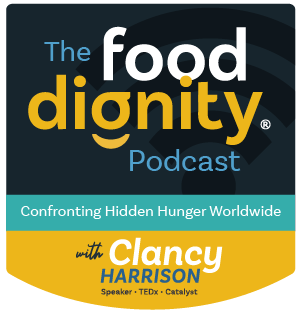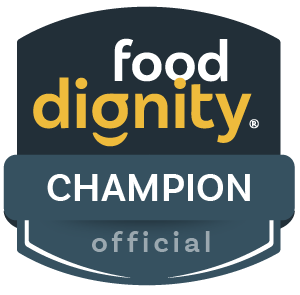Episode 124: A Case for a Food Bill of Rights

About the Podcast
We’re honored to feature superstar Tambra Raye Stevenson, founder and CEO of WANDA, Women Advancing Nutrition Dietetics and Agriculture. Her team is working to build a pipeline of a million women and girls to lead from farm to health through education, advocacy, and innovation. She strives to put diverse perspectives at the forefront so more voices can change the food system and the decision-making processes surrounding it.
About Tambra Raye Stevenson
Tambra Raye Stevenson is the founder and CEO of WANDA: Women Advancing Nutrition Dietetics and Agriculture building a pipeline of a million women and girls to lead from farm to health through education, advocacy, and innovation. A true champion for nutrition and health equity, she has been recognized as the 2021 Science Defender by the Union of Concerned Scientists, a 2021 Changemaker by Clean Eating Magazine, 2020 Changemaker in the Food System by Washington City Paper, National Geographic Traveler, ASHOKA/RWJF’s Champion for Children’s Wellbeing and by the NAACP with the Wm. Montague Cobb Advocacy Award.
Appointed to the D.C. Food Policy Council, Tambra supported increased funding and access to healthy food along with nutrition and dietetics services for all to address the food apartheid. She was appointed by USDA Secretary Vilsack to the National Agricultural Research, Extension, Education, and Economics Advisory Board. She co-chairs the Nutrition Security working group with John Hancock Insurance for the Tufts Food and Nutrition Innovation Council. She also serves as the first North American representative for the African Nutrition Society. She has led high-level meetings at UN Commission on the Status for Women's NGO Forum, World Bank/IMF Spring Meetings, African Union Mission, U.S. Library of Congress, and Smithsonian Museum. She is a James Beard Awards judge and board executive for Les Dames d'Escoffier International DC Chapter.
After Tufts, she began her public service career at the Secretary’s office of the U.S. Department of Health and Human Services, the U.S. Department of Commerce, D.C. Mayor’s office on women’s policy and victim services, and UDC’s Center for Nutrition, Diet, and Health. She earned an M.P.H. in Health Communication at Tufts University School of Medicine and a B.S. Human Nutrition and Spanish at Oklahoma State University. She is pursuing a Ph.D. at the American University School of Communication.
Discussion Takeaways
- If we democratize nutrition, that allows everyone to see themself as a change agent throughout a community, the nation, and around the world!
- How do we build generational wealth in the form of generational health?
- Systematic barriers often hinder people from living their God-given life to the fullest.
- Cultural foods can act like medicine.
- Food democracy is the food participation of all citizens involved in the food system.
- Loan repayment programs for schooling are available to healthcare professionals working in high-risk communities, but not for dietitians. Why aren’t nutritionists included in this opportunity? Loan repayment programs should be available across any federal agency that touches food, nutrition, and health.
- Do we have enough diversity in the dietetics in the field? No. Only 3% of nutritionists are black.
- The US Department of Agriculture Health and Human Services needs to develop an evidence-based approach to meeting cultural food needs. Research has to be funded and done.
- We have the right to receive and give food with respect and dignity. We must give what we wish to receive.

- In the Bureau of Health Professions, they are looking at healthcare workforce issues, but there is no equivalent to nutritional workforce issues. Health and Human Services has an Environmental Justice Office, but why don’t they have one for food justice?
- Modernization of nutrition education is necessary. Nutrition communication over various media matters and needs to be better understood. Digital media research has to be done to understand its impact.
#1 tip to improve access to healthy food
- Nutrition security is national security issue.

Each week on the Food Dignity® Podcast, the Food Dignity® Movement’s Clancy Harrison hosts a wide variety of hunger experts and other people making changes on the frontlines. Join us as we dive deep into conversations that will change the way you think about food insecurity.
Listen to our trailer!
Want to learn more about how we might work together?

Fight hidden hunger by becoming a
Food Dignity® Champion and take the HIDDEN HUNGER PLEDGE >


